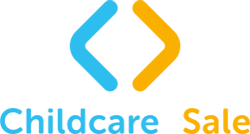The statistics are shocking: in Australia, over 80% of children aged two to five years use the internet. That’s four in five preschool aged children turning to risky cyberspace for entertainment, learning, creativity and school preparedness.
Lincoln Bridge Tweet
The catastrophic Optus and Medibank hacks recently have reminded us how easily our privacy and personal information can be compromised, so how do we protect these vulnerable young minds as they become increasingly invested in the online world?
According to researchers, the answer is in clearly defined education strategies delivered as early as daycare.
Nicola Johnson, the Edith Cowan University Associate Professor and Security Research Institute (SRI) Deputy Co-Director, believes children should receive fundamental learning about the risks of internet use while in Early Childhood Education and Care (ECEC) settings.
Some may argue that cybersecurity is too big of a concept for such young minds. However, one eSafety study conducted by Professor Susan Edwards found that 9 in 10 four-year-olds would click on a pop-up despite not being able to read it, while almost 75% would tell someone their name and address details over the internet.
“There is a strong case for this key knowledge as well as Australian privacy principles and laws to be explicitly taught at much younger ages, given how cyber criminals so quickly and creatively come up with new ways to scam our citizens,” Dr Johnson says.
“Exactly what needs to be taught surrounding cybersecurity needs to be very clear within the curriculum. Teachers need professional learning to help them teach cybersecure behaviour effectively and confidently.”
While it will take time for a change to be formally built into the curriculum, parents and early childcare staff can begin introducing digital resilience daily. The most effective method of heightening online awareness and safety is through positive role modelling.
The following tips can be introduced in any home or childcare environment.
In this blog:
How to create cyber-savvy children
Role model healthy online behaviours.
A great place to start is with an honest review of your own screen use while in the company of children. By being more aware of time spent texting, emailing, scrolling social media or looking at photos, you can begin to understand how much importance you place on your screen through the eyes of a child.
Reduce unnecessary screen time.
When you do need to engage with your screen, explain the reasons for it. By opening the conversation and promoting discussion, you can encourage them to think critically about technology use.
Go online together.
Allow the child to guide the interactions and provide guidance along the way. If a pop-up appears or they veer towards inappropriate viewing for their age, give feedback about why they should avoid the game, site or experience. Gently steer them back to more suitable activities.
Introduce age-appropriate browsers.
Kiddleor Kidtopia and apps like ABC Kids add an extra layer of security and peace of mind.
Involve others in the child’s learning.
Encourage families to model the same behaviours mentioned above, and to only watch appropriately rated shows with younger siblings. There are some wonderful family-friendly resources available, such as this fun Playschool episodeabout Kiya’s eBirthday!
Parents can model consent and respectful data sharing by asking for permission before using a child’s information. While asking a child whether they are happy for you to post their photo won’t constitute legal consent due to their age, it does demonstrate the fact they have a choice and that their decisions should be respected.
As children develop more awareness, talk to them more specifically about online safety and the four eSafety Early Years messages of “Be safe”, “Be kind”, “Ask for help” and “Make good choices”. More information about these concepts and how to explain them is available in the ‘Online safety for under 5s’ booklet.
Finally, all places where children can access technology should have privacy settings and parental controls in place. Options such as location services, in-app purchases and one-click payments should be disabled.
If you or your child encounter offensive online content, file a complaint to the eSafety commissioner and help to reduce the risk for yourself and others in the future.
Selling A Childcare Centre
If you’d like to book an appraisal, you’re welcome to contact Lincoln directly on 0424 370 025, or Andrew Urquhart on 0408 439 762.
You can also register your interest as a seller for more information about the sale process, appraisals, and your profit potential.






